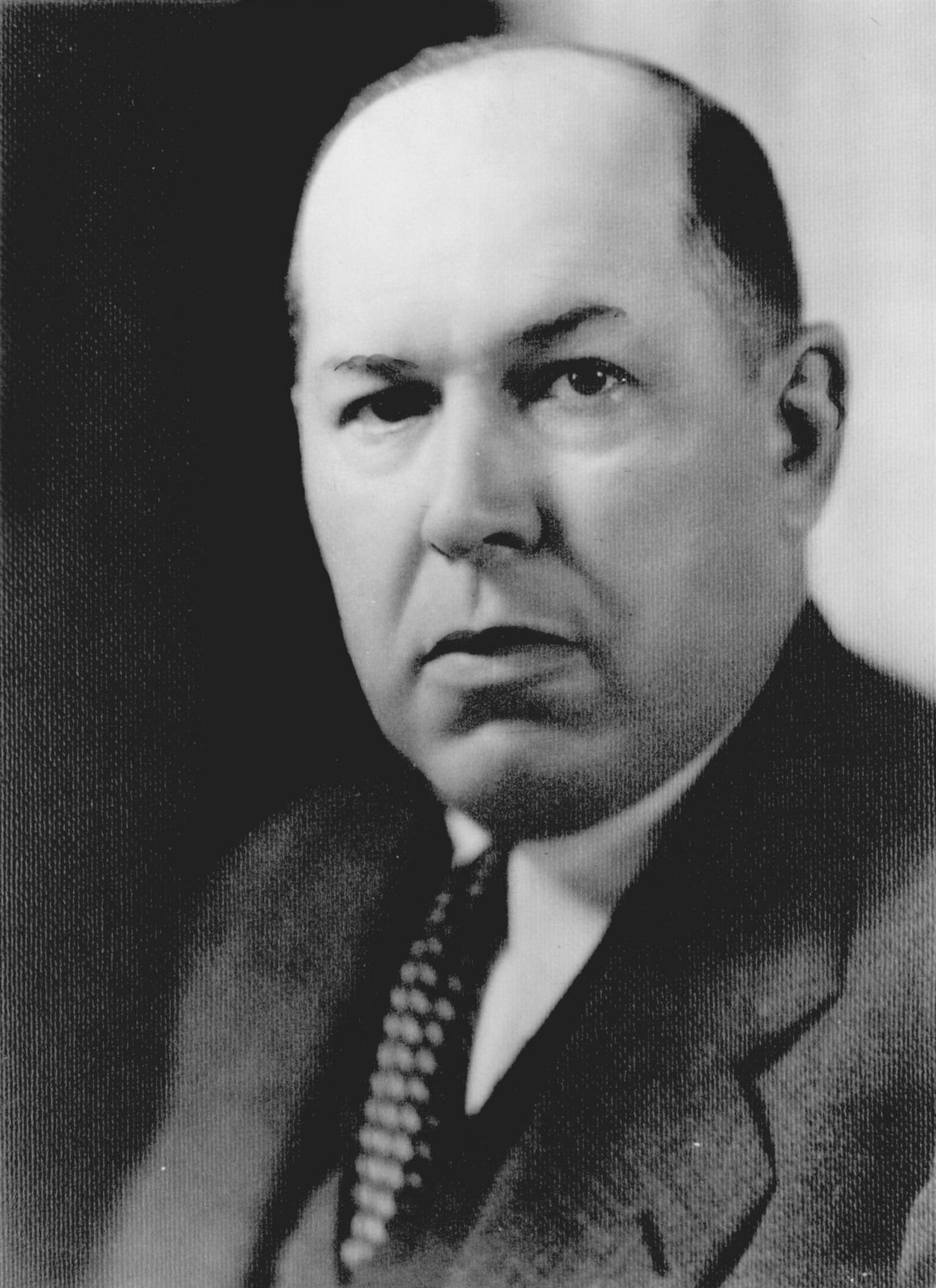The Encyclopedia of Oklahoma History and Culture
SKELLY, WILLIAM GROVE (1878–1957).
Tulsa oilman and philanthropist William Grove "Bill" Skelly was born in Erie, Pennsylvania, on June 10, 1878. He was one of six children of Irish and English immigrants William and Mary Jane Sweatman Skelly. They both endowed him with a strong work ethic. While in grammar school, the younger Skelly earned money by hawking newspapers on the streets, and during the severe Pennsylvania winters he cleared snow from his neighbors' steps and sidewalks. He finished public school at age fourteen and attended Clark's Business School in Erie, completing the course in less than a year. He then worked with his father hauling oil-well supplies ninety miles on a dirt road in a horse-drawn wagon. This exposure to the "oil patch" and the people employed there forged his destiny. Skelly went to work for $2.50 a day as a tool dresser in the Venango Field in Pennsylvania. Later, Venango County supplied many experienced oilmen to Oklahoma.
Skelly absorbed as much oil-field knowledge as he could. He learned that he had to begin at the bottom and work his way up if he was to succeed. However, his dream was interrupted in 1898 by the Spanish-American War. He joined the Sixteenth Pennsylvania Volunteers and participated in the Battle of Coamo in Puerto Rico. Upon his return he moved to Gas City, Indiana, where he became manager of the Citizens Gas Company. There he learned that millions of cubic feet of natural gas were wasted everyday. He became interested in George Westinghouse's new system of controlling and conveying natural gas through pipelines. The wisdom that Skelly gained served him well in later years.
Oil booms in Ohio, Indiana, and Illinois made Skelly decide that it was time for him to become an independent producer. He sought backing for money to buy leases and to drill for oil and later moved southwest. He first went to Texas but found a greener pasture in the El Dorado Field in Kansas, which had opened in 1916. There he became one of the Mid-Continent Region's largest operators. He organized his Midland Refining Company, and it was in production by 1917. Then in 1919 he incorporated the Skelly Oil Company and established his headquarters building in Tulsa, Oklahoma, then known as "the Oil Capital of the World." By 1923 the Skelly Oil Company had become one of the strongest independent producers of crude oil and manufacturers of natural gasoline.
During the 1920s Skelly took interest in the Burbank Field in Osage County, Oklahoma. The field was owned by the Osage Nation, whose official auctioneer, Colonel Ellsworth Walters, held oil-lease auctions under the Million Dollar Elm in Pawhuska. It was not uncommon for a quarter-section lease to sell for more than $1 million. Skelly had good relations with the Osage. Proceeds from these sales plus oil and gas royalties from successfully completed wells were paid directly to the tribe for division among its members. He also introduced a system of preserving gas pressure in the Burbank Field so that wells would continue to flow by natural pressure.
Skelly's production of crude oil rose from 1,639,722 barrels in 1920 to 8,753,127 in 1929. In addition to the wells and refineries, he had his own system of pipelines to move the oil from the fields to the processing plants. At the same time he acquired a network of seventy-five jobbers and had sales representation in eleven states. By 1930 Skelly Oil Company owned and operated 471 bulk and service stations and had more than four thousand franchise dealers.
Over the years Skelly became the champion and leader of numerous civic, educational, and charitable causes in Tulsa. He spent many hours in Washington, D.C., and in Oklahoma City representing the petroleum industry. He served as president of the International Petroleum Exposition from 1925 until his death, and in 1928 he founded Tulsa's Spartan School of Aeronautics. In 1954 Skelly, a steadfast Republican, and U.S. Sen. Robert S. Kerr, an equally staunch Democrat, joined forces and aired Tulsa television station KVOO. In 1955 the Oklahoma Legislature passed a unanimous resolution in which Skelly was praised as Tulsa's greatest asset. William Grove Skelly, a true giant of the Oklahoma petroleum industry, died in Tulsa on April 11, 1957. He was survived by his wife, Gertrude Frank Skelly, and two daughters.
See Also
CITIES SERVICE COMPANY, JOSHUA SENEY COSDEN, PETROLEUM INDUSTRY, SINCLAIR OIL AND REFINING CORPORATION, WARREN PETROLEUM COMPANY
Learn More
Robert Gregory, Oil in Oklahoma (Muskogee, Okla.: Leake Industries, 1976).
Rex F. Harlow, Oklahoma Leaders: Biographical Sketches of the Foremost Living Men of Oklahoma (Oklahoma City: Harlow Publishing Co., 1928).
Roberta Louise Ironside, An Adventure Called Skelly: A History of Skelly Oil Company Through Fifty Years, 1919–1969 (New York: Appleton-Century-Crofts, 1970).
Tulsa (Oklahoma) Daily World, 12 April 1957.
Citation
The following (as per The Chicago Manual of Style, 17th edition) is the preferred citation for articles:
Ken Anderson, “Skelly, William Grove,” The Encyclopedia of Oklahoma History and Culture, https://www.okhistory.org/publications/enc/entry?entry=SK002.
Published January 15, 2010
© Oklahoma Historical Society


